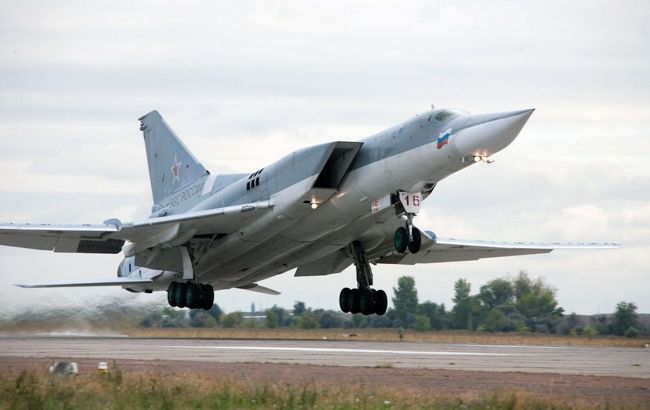Ukrainian expert: SBU's successful strikes reduced Russia’s large-scale attack capabilities
 ChatGPT said: Photo: SBU put out of action a third of Russia’s combat-ready aircraft (Russian media)
ChatGPT said: Photo: SBU put out of action a third of Russia’s combat-ready aircraft (Russian media)
During Operation Spiderweb, Ukraine's Security Service (SBU) struck combat-ready Russian aircraft, a third of which were destroyed. Therefore, massive missile attacks on Ukraine are unlikely to occur anytime soon, states aviation expert Valerii Romanenko in a comment to the RBC-Ukraine YouTube channel.
"There are a third fewer (of aircraft now, — ed.). Because they (SBU - ed.) struck those aircraft that were operational and combat-ready. The planes that are parked at storage bases are fueled. And each strike was accompanied by an explosion of orange flames, indicating the burning of aviation fuel, kerosene, along with a huge explosion and a long column of smoke. This means that it is the aviation fuel itself that is burning," Romanenko said.
According to him, only combat-ready aircraft at airfields are fully fueled. Therefore, where there are large fires, those are combat-ready planes, and if the previous forecasts are confirmed, then about a third of the aircraft have been put out of action.
"Even if the number is smaller, with reports of around 13 aircraft, it is still a serious blow to the Russian strategic aviation. They are unlikely to be able to carry out such massive strikes as before, both today and in the near future, or to simultaneously deploy nine Tu-95MS bombers into the air. As for the Tu-22M3 planes, they are generally too far away and won’t be able to participate in combat missions. Only one squadron remains in Mozdok, which, a couple of weeks ago, launched just a single Kh-22 missile at Ukraine. In other words, their capabilities there are extremely limited," the expert noted.
Operation Spiderweb
On June 1, the Security Service of Ukraine (SBU) carried out an attack under the codename Operation Spiderweb, which had been planned for over a year and a half.
SBU drones attacked several Russian airbases simultaneously. The drones struck four military bases: Belyayevo, Dyagilevo, Olenya, and Ivanovo.
As SBU Head Vasyl Malyuk explained, the drone strikes damaged 41 Russian strategic aviation aircraft, including A-50, Tu-95, Tu-22M3, and Tu-160 models.
"In total, this involved damage to 34% of the strategic cruise missile carriers at Russia’s main deployment airfields. This was not just a devastating blow to the enemy’s aviation but a serious slap to the power and terrorist nature of the Russian Federation," Malyuk noted.
The estimated value of the damaged enemy strategic aviation reaches 7 billion US dollars.

